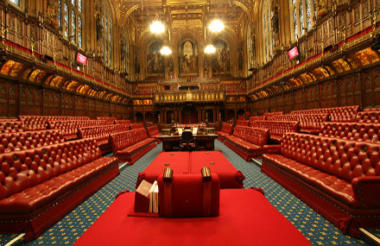Lord Rooker has said that charitable trusts should not see their capital as “sacrosanct” and that the House of Lords Committee on Charities might recommend that foundations should be forced to spend a certain amount.
The Association of Charitable Foundations strongly objects to the suggestion of mandatory payout rates and suggested this would amount to an “attack on the independence of trustees”.
Speaking at a Charities Aid Foundation event at the Labour Party Conference in Liverpool yesterday, Lord Rooker said the sector should consider “something we can do for ourselves on funding”.
“Charitable trusts are in possession of enormous capital,” he said. “Why shouldn’t they be required to give around 1.5 per cent to charity?”
He added that their capital should not be seen as “sacrosanct”.
“Billions of pounds of capital is tied up in charitable trusts,” he said.
Rooker said the issue had come up in evidence submitted to the House of Lords Committee on Charities, which he is part of, and that it is something the committee will look at.
Rooker is the chair of the British Motor Sports Training Trust, a grantmaking charity which supports people injured in motor sports and funds programmes to improve safety. It had an income of £241,000 and spent £295,000 for the financial year ending December 2015, and has unrestricted capital funds of £4.1m, £3.6m of which is held in investments.
John Low, chief executive of the Charities Aid Foundation, said that it is a “British tradition to preserve the endowment” as opposed to the American view that it should be spent down, and that so far this has broadly “served us very well”.
ACF: ‘Lord Rooker’s comments are unhelpful’
Responding to Rooker, the Association of Charitable Foundations told Civil Society News that mandatory spending rates would put funders out of business and described his comments as a attack on the independence of trustees.
A spokesman said: “Lord Rooker’s comments are unhelpful. They fail to acknowledge that foundation endowments are an enduring source of support for civil society and that careful stewardship of them allows funders, many of whom have existed for hundreds of years, to take risks, offer long-term support and back causes that otherwise may struggle to gain attention.
"Evidence shows that enforcing a mandatory spending rate could put many funders out of business in a generation. While for some funders this may be the right thing to do, for others, it would fetter their independence in balancing the needs of today’s generation with those of the future.
“Such an attack on the independence of trustees to decide how best to use their resources neglects the importance of individual charitable mission, attitude to longevity and market context.”
He added that it would be unfair to draw comparisons between the US and UK market.
"The US context, often used to justify the argument for mandatory payout rates, is very different - with more ongoing philanthropy into foundations, enabling a seemingly higher spending rate, than here in the UK - as well as much more expansive allowances around what counts as charitable spend, which in turn stands as a proxy for philanthropic benefit.
“A one-size-fits-approach is unlikely to have a net positive effect on spend over the long term, and in the process would risk hampering foundations in their mission to use their resources in the service of supporting others, whether by preserving social good that is under threat or catalysing it where it is absent."









